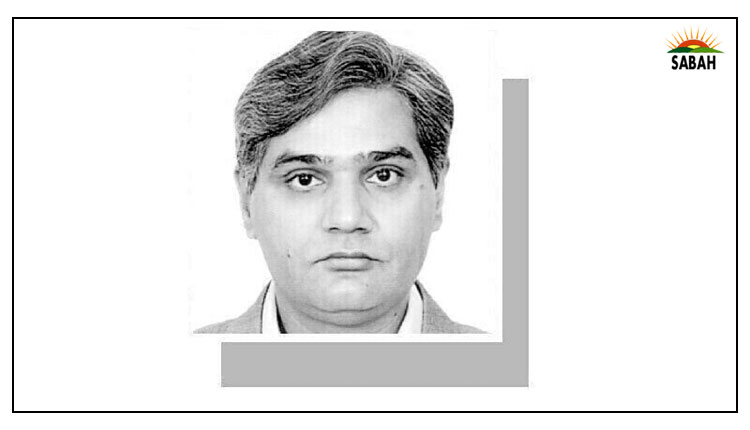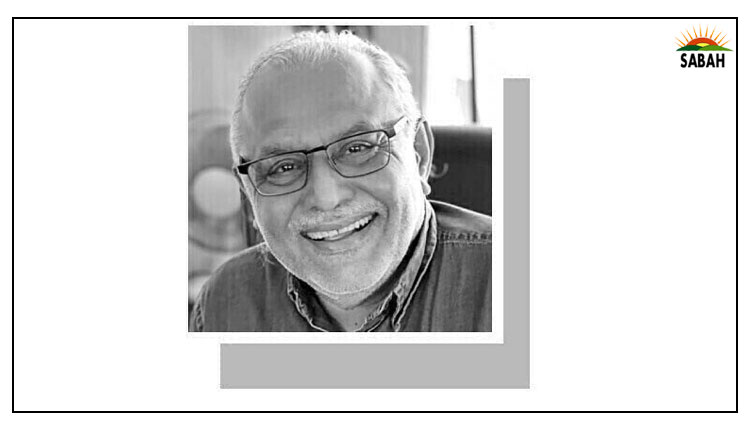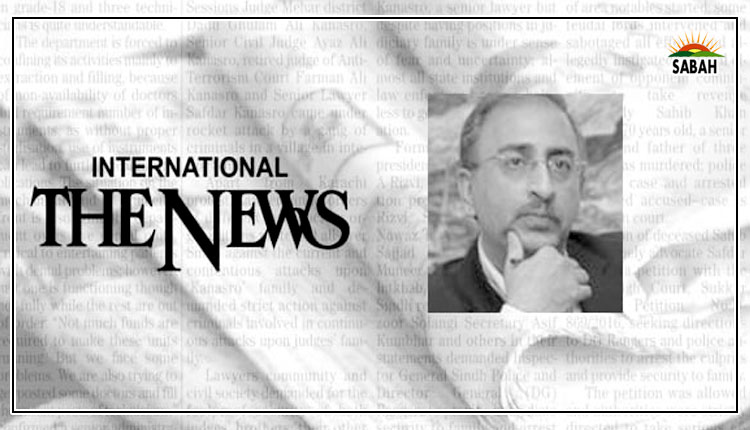TTP, Kabul and strategic patience… Imtiaz Gul
Casualties from the TTP-led attacks continue to mount. An uneasy and tense Pak-Afghan conversation accompanies this violent campaign that also involves other proxy terror outfits such as ISKP, BLF and Ahrarul-Hind, all believed to be using the Afghan soil for shelter and planning. The issue has obviously served as a spoiler of bilateral relations, though the Taliban regime claims it is doing its best to prevent terror outfits from using Afghanistan for attacks on neighbours interests.
A recent trip to Kandahar and Kabul provided some glimpses into how senior Taliban officials view Pakistans displeasure with their counter-terrorism efforts. Most officials sound wary of discomforting, at times conflicting or intimidating, statements by Pakistani leadership.
Your prime minister, defence and foreign minister as well as the army chief have all been publicly speaking with different tongues and in a threatening tone on the issue of TTP, said a visibly angry senior official (Taliban cadre), suggesting that even the hard talk that the army chief gave at Peshawars Grand Jirga (August 7) had filtered through to them. That was quite an offensive way of dealing with a matter that concerns two countries, said the highly placed officials. Let us discuss contentious issues through talks and not via media, which can easily stoke disagreements and fuel negative sentiments, he added.
The Pakistan army chief had in his address to the jirga reportedly shot down the suggestion by the Afghan Taliban to resume talks with the TTP. The jirga was told that talks will only be held with the Taliban regime as the TTP is in their territory. And that stance did not go down well with Kabul and Kandahar.
We have smashed many terror cells, arrested a number of terrorists of all shades, placed restrictions on several groups and followed up our actions with a decree on terrorism (in mid-July), said an influential official, alluding to the order that bars all Afghans from launching cross-border attacks.
The order says all those using Afghan soil for terrorism in neighbouring countries will have to face consequences if found involved; and they will be dealt with under the law of the land. All Afghans have been told to stay away from foreign militants.
The decree, it seems, is the first major written commitment by the Taliban regime to the international community. It addresses concerns of all neighbours including Iran, Pakistan, China and the central Asia republics. Something even stronger may ensue in the coming weeks to cement the Taliban counter-terrorism commitment. Pakistani officials on the other hand expect the Taliban rulers to openly denounce TTPs terror actions.
In background briefings, extremely well-placed officials both in Kabul and Kandahar concede there are ideological, political and capacity limits to what their government can do. They request a little more patience and insist they mean business as far as counter-terrorism is concerned.
As a nation recovering from long years of war, they say, we desire friendly, friction-free relations with all our neighbours. Their diplomatic, political and economic support is crucial for rehabilitation, reform, trade and economic development, officials underline.
How can we then tolerate any threats or attacks on the interests of our neighbours, an official in Kabul asked. We are working overtime to gradually minimise and eventually neutralise threats to all our neighbours.
The official went on to add that the Taliban regime has been able to bust several criminal gangs and captured terrorists including those of TTP and ISKP/Daesh. Earlier people kidnapped and vehicles stolen in Pakistan were brought to Afghanistan for the final bargain; and criminals used to use Afghan mobile phones for extortion in Lahore and Islamabad. We have literally put an end to those criminal activities, he recounted.
Total elimination would require similar sustained efforts by Pakistan. Dont expect Afghanistan to become Norway overnight after over four decades of conflict is the cautionary caveat.
Given our peculiar socio-political (tribal) context, give us some time before subjecting us to unfair criticism, explained a foreign ministry official in Kabul, adding that the Taliban leadership also wants to reap the dividends of security that they have ensured for the country through a relentless struggle.
Hamid Karzai, the former president, also favours a candid but behind-the-scenes process to identify problems and explore possible mitigation.
Your complaints with regard to the TTP using the Afghan soil are not different from the complaints we made for over two decades, Karzai said in reference to Pakistani officials growing impatience with what they call Kabuls reluctance in sternly dealing with the TTP leadership in Afghanistan. We used to send dead bodies of Pakistanis who were fighting here along with Taliban. Now you want us to collect dead bodies of Afghans found involved in acts of terrorism. This is the moment of reflection and correction for a constructive way forward, he said.
Everybody commits mistakes but that must not hold back from corrective measures, said Karzai who still looms large over the Afghan landscape, enjoying his official residence that the Ghani government had put at his disposal. He had refused to leave the country and even spurned US offers for evacuation in August two years ago.
I would like to stick around for as long as possible. As a son of the soil why should I be worried, Karzai had reportedly told his friends a day before Taliban marched into Kabul on August 15, 2021.
Courtesy The Express Tribune












